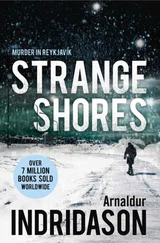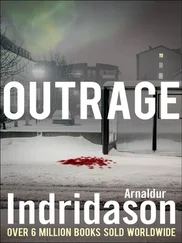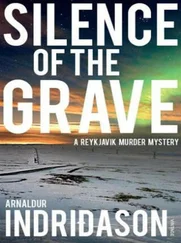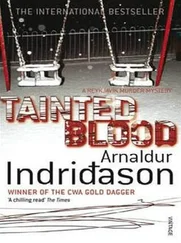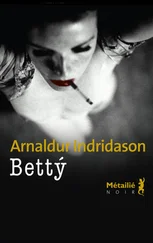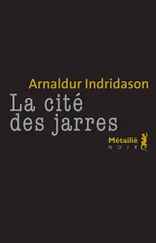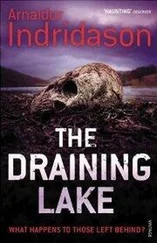During his time at the depot he had learned to keep an eye out for useful objects, things he might be able to sell or use himself. He knew some of the collectors complained that not everything ended up on the second-hand market according to the rules but he did not give a toss about those weirdos. He had a nice little sideline in watching what people threw out, and, after all, it was not as if the company was generous with its wages. It was shitty pay for a shitty job.
He never ceased to be surprised by what people threw away. They would chuck out literally anything. He was not much of a reader himself but he saw vans bringing whole libraries that people wanted to clear out, as well as apparently intact furniture, perfectly good clothes, kitchen appliances, even relatively new audio equipment.
It had been quite busy that day, despite the cold and the northerly gale that ripped and tore at his blue overalls. People threw out rubbish all day long, all year round, whatever the weather. Vans brought the personal effects of the recently deceased, someone was getting rid of a bath, others were replacing their kitchen units. And then there was the drink-can gang. Receiving cans and bottles was his least favourite job. They were always trying to lie about the number. Sometimes when he could be bothered to count out the contents of the bags (nice clean job that was), their estimate would turn out to be wildly different from his calculation. And they were not even abashed. Just grinned and acted all surprised.
A car drove up to the gate and halted by the large sign that directed everyone to stop and await instructions. Most obeyed. When he saw that no one else was going to attend to the driver, he slouched over.
“I’ve got an old bed here,” the man said as he lowered the window.
He was in a large jeep and had broken up the bed to fit it in the back. No use to anyone then.
“Does it come with the mattress and everything?” he asked.
“Yes, the lot,” the man said.
“Straight on, mattress on the right, planks on the left, okay?”
The man wound up his window. The employee watched him go, then put his head round the door of the staff hut by the gate. The seven o’clock news was just beginning and he wondered if he should step into the warmth for a minute. He could not hear the television but could see the screen: crowds throwing stones in the Middle East, the American president giving a speech, Icelandic sheep, a knife on a table, an Icelandic cabinet minister cutting a ribbon, the president of Iceland receiving guests …
Another car pulled up at the gate. Window down.
“I’ve got a fridge,” the man said.
“Does it work?” he asked. He always checked on the refrigerators to see if they were in working order as he could use a decent one himself.
“Completely caput, I’m afraid,” the man said with a smile.
He noticed out of the corner of his eye that the knife had reappeared on the TV screen and all of a sudden he had the feeling that he had seen it before.
“Where do I go with the fridge?” the driver asked.
“Over there, to the right,” he said, pointing to where kitchen appliances stood around, forlorn and abandoned in the howling gale.
He hurried into the hut and sat down in front of the little television set. The newsreader was saying that the murder weapon could possibly look like this; it was a wood-carving knife of the type used in school carpentry workshops. He knew what murder they were talking about: the Asian boy by the block of flats. He had seen the news footage.
He took the knife out of its sheath and examined it. It was identical to the knife on TV. He had found it in the scrap-metal container and made a sheath for it. Then he had found a belt which he now wore over his overalls, with the sheath fixed to it and the knife in the sheath. It made an excellent tool for cutting string, opening bags of drink-cans, or simply whittling bits of wood in the hut when business was slow. He stared at the knife in his hand as gradually it dawned on him that he might be holding a murder weapon.
A car drove up to the gate and stopped.
He would probably have to hand in the knife, let the cops know. Or would he? What did it have to do with him? It was a bloody good knife.
The driver spotted him loitering in the hut and hooted.
He did not hear the car horn. He was thinking that the cops might jump to the conclusion that he had killed the boy if he had the knife on him. Would they believe him that he had found the knife in the scrap-metal bin? Had crawled inside because he glimpsed the little wooden handle and was well trained in spotting handy objects? They emptied the container every few days and it had been only about half full. Someone had come to the depot and thrown the knife in the container.
The murderer?
The newsreader had said that the murder weapon might possibly be a knife of this type, and if so the attacker might be connected in some way to the school.
The driver, who was growing extremely impatient, hooted again, this time for longer.
The employee jumped and looked outside.
Maybe they wouldn’t believe him. He had been called a racist once when he described how the Asians brought in bags of cans and lied about the number.
But then again, he might become famous.
He might become famous.
He looked at the driver who glared angrily back at him and beckoned him to come out and attend to him.
He smiled.
The driver emitted a shout of rage when the employee gave him an idiotic grin, then picked up the phone right in front of his eyes and started making a call.
He dialled the emergency number, 112.
He could be famous.
Sigurdur Oli was waiting for Erlendur in the corridor outside Andres’s flat.
“How did it go?” he asked as they walked down the stairs.
“I don’t know,” Erlendur said, preoccupied. “I reckon Andres has really lost the plot.”
“Did you get anything useful out of him? Did he say anything?”
“Nothing about Elias.”
“What then? What did he say?”
“Firstly, he knew the man in the photo,” Erlendur said. “It is his stepfather. He implied that the man had committed a murder a long time ago.”
“What?”
“I don’t know,” Erlendur said. “I don’t know what to believe.”
“What murder?”
“I don’t know.”
“Isn’t it just a wind-up?”
“Probably,” Erlendur said. “But the little he’s said so far has proved accurate.”
“Yes, but that’s not saying much.”
“Then he said he was going to sort it out himself, whatever that means. We should have Andres watched over the next few days.”
“Yes. Anyway, they think they’ve found the knife,” Sigurdur Oli said.
“Really?”
“They just called. Someone disposed of it in a rubbish container. We still have to check whether it’s the same knife but it seems likely. I gather it’s identical. They showed it on the news and some boy turned out to have retrieved it from the tip. We may find some trace elements, though the boy who found it had been using the knife at work and would have given it a good clean first. But forensics always manage to find something with that fancy equipment of theirs.”
They drove to the recycling depot. The forensics team had closed the place to traffic and a yellow police cordon flapped in the wind. The technicians were searching for clues as to who had thrown the knife away, but only for form’s sake. Two days had elapsed since the employee found the knife. Countless people and cars had passed through the depot since the murder was committed and none of the employees had spotted anything out of the ordinary. No one had been seen sneaking around the container. There was no CCTV on the gate. The police had nothing to go on.
Читать дальше


